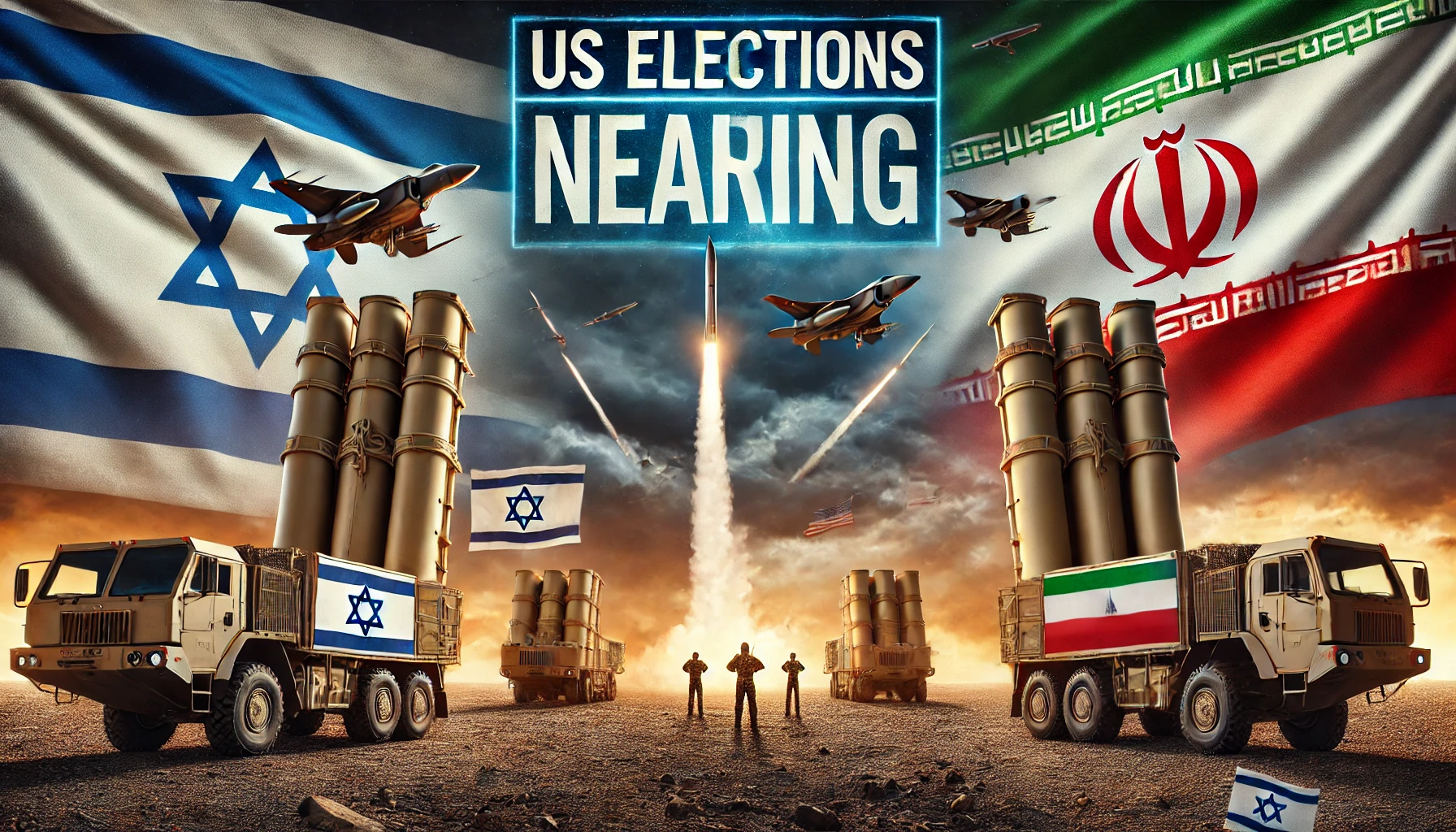Tel Aviv: The escalating tension between Israel and Iran has reached new heights, with each side openly challenging the other, executing air strikes, and launching missiles. Over the past month, the situation has intensified, punctuated by significant military maneuvers and dire warnings of severe retaliation. The recent actions on both sides have contributed to a volatile standoff with broader regional and international implications, especially as the U.S. presidential election draws closer.
Overview of Recent Hostilities
- Operation Days of Repentance
On October 25, Israel launched a large-scale air strike, code-named “Operation Days of Repentance.” This high-stakes mission involved 100 Israeli fighter jets that entered Iranian airspace and conducted bombing raids on key military targets. Israel has been tight-lipped about the specific targets but has confirmed that military bases and missile production sites were the primary objectives. According to Israeli reports, four Iranian soldiers lost their lives, a detail that has been contested by Iranian sources who downplayed the extent of the damage. - Iran’s Missile Barrage
Earlier this month, on October 1, Iran launched over 180 missiles at Israel. Israel’s defense system managed to intercept the majority of these missiles, mitigating potential casualties and infrastructure damage. However, this assault heightened the stakes, prompting Israel to issue a stern warning to Iran about the consequences of further aggression.
Key Threats and Counter-Threats
The rhetoric between the two nations has grown increasingly severe. Following the October 1 missile attack, Israeli officials cautioned Iran against any future strikes, with the defense ministry asserting that even a single missile on Israeli soil could trigger a strong, possibly escalatory, response. Meanwhile, Iran has issued its own stark warning, claiming it is preparing a “decisive and massive” attack on Israel before the U.S. presidential election on November 5. The timing, Iranian officials have implied, would be strategic, targeting a period of potential political uncertainty in the United States.
This pre-election threat from Iran is likely aimed at leveraging the existing geopolitical tensions, as the outcome of U.S. elections could influence Washington’s stance on Middle Eastern conflicts. Israel and the U.S. share a strong strategic alliance, with the U.S. often providing Israel with diplomatic, financial, and military support. Iran’s stated intent could be an attempt to pressure Israel and its allies while capitalizing on potential shifts in U.S. foreign policy.
U.S. Involvement and Implications for the Region
The U.S. has historically played a significant role in the Israel-Iran conflict, providing Israel with advanced military capabilities and extensive intelligence support. Recent statements from both the U.S. and Israel underscore a united front, warning Iran of severe repercussions should it initiate further attacks. Washington’s strong stance suggests that any Iranian aggression could provoke a U.S. response, although specifics remain unclear.
Given the complexities of the U.S.-Iran relationship, which includes economic sanctions and ongoing diplomatic tensions over Iran’s nuclear ambitions, this conflict holds broader implications. A full-scale Israeli-Iranian conflict could disrupt the stability of the entire Middle East, impact global oil supplies, and draw in other regional players, many of whom have vested interests in the outcome of U.S.-Iran relations.
Retaliation Concerns and Future Prospects
As Israel proceeds with its strategic military operations, fears of Iranian retaliation loom large. Israeli security sources have acknowledged the possibility of retaliatory strikes from Iran, likely in the form of missile attacks targeting Israeli cities and infrastructure. Israeli outlets, including the Jerusalem Post, report that the country is preparing for various scenarios, including heightened security protocols and the potential mobilization of reserve forces to protect high-risk areas.

Iran, on the other hand, has maintained that it will respond firmly to Israel’s provocations, dismissing Israel’s reports of damages inflicted during Operation Days of Repentance. The extent to which both countries can sustain such a cycle of aggression remains uncertain, as international diplomatic efforts to mediate the conflict are limited.
Strategic and Diplomatic Outlook
The Israel-Iran conflict is multi-layered, encompassing ideological, territorial, and political dimensions. The recent escalation highlights how the rivalry has moved beyond covert operations and proxy battles to direct confrontation. The situation could further strain the security landscape in the Middle East, impacting neighboring countries such as Syria and Lebanon and potentially influencing broader global security considerations.
The international community, especially regional actors and Western allies, faces the challenge of addressing these hostilities without further inflaming tensions. Diplomatic efforts have yet to yield a tangible resolution, but the potential for a diplomatic intervention remains essential to avert a large-scale conflict.
The situation between Israel and Iran is precarious, with significant ramifications for regional stability and international security. As both countries maintain strong postures and prepare for possible escalations, the threat of a larger conflict remains a serious concern. The world watches with apprehension, as the outcome of these tensions could redefine alliances, disrupt the Middle East’s stability, and potentially alter the geopolitical landscape for years to come.









